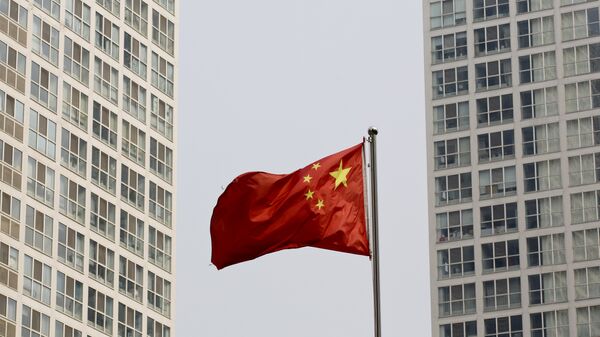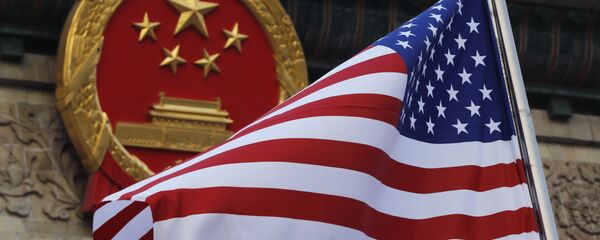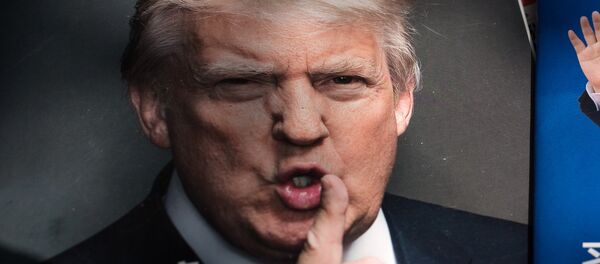Political turmoil in Sri Lanka escalated sharply on Friday, after President Maithripala Sirisena appointed his predecessor, Mahinda Rajapaksa, to replace the nation’s prime minister in order to form a new cabinet. The crisis turned deadly this week after one person was killed when a petroleum minister from the ousted cabinet tried to enter his former office.
The return of Rajapaksa, who oversaw heavy Chinese investments in the country during his presidential tenure in 2005-2015, to politics raised questions about whether China was seeking to re-establish its influence in Sri Lanka after Rajapaksa failed to become prime minister in the nation’s general election in 2015.
Long-term Presence
However, no matter who comes out as prime minister as result of political struggle, China’s growing influence in Sri Lanka is unlikely to be affected, political analysts pointed out.
"This is a very good example of China’s soft diplomacy approach in its foreign relations. Through low-interest loans and investments in a number of recipient countries, China is able to buy a long-term presence effectively in a number of countries, at a relatively discounted rate. It’s able to secure not just investments and strategic influence, but also how China wants to conceptualize its long-term goals. We know that China has a clear plan to be the world’s dominant power by 2050. My guess is that China will achieve that status well before 2050," Damien Kingsbury, a professor of international politics at Deakin University in Australia, told Sputnik.
READ MORE: China Ready to Produce Oil, Gas With Philippines in South China Sea — Minister
The scholar explained that countries like Sri Lanka continued to rely on Chinese investments for infrastructure projects the nations could not afford on their own, despite such investments usually bringing limited benefits to the local economy.
"Chinese investments typically employ Chinese labor and use Chinese sourced goods. Its net impact on the domestic economy [of recipient countries] is actually relatively small. The real benefit from Chinese investment projects is they often build infrastructure that the country in question would not be able to afford to build by itself," he said.
Sri Lanka had to hand over control of the Hambantota port on its southern coast to China in December 2017, after the local government struggled to repay the $1.3 billion given in loans issued by a Chinese state-owned bank for the port project. Through a 99-year lease agreement, Chinese companies obtained a 70 percent stake in the strategic port.
China's Response
During a regular press briefing on Monday, Chinese Foreign Ministry spokesman Lu Kang reiterated that China was not taking a side in the ongoing political crisis in Sri Lanka, following the nation’s principle of non-interference in other countries’ domestic affairs.
"As a friendly neighbor to Sri Lanka, China has been closely following the situation in Sri Lanka. We follow the principle of non-interference in other countries' domestic affairs. What is going on in Sri Lanka is their domestic affairs. We believe that the Sri Lankan government, parties and people have the wits and ways needed to deal with the current situation," Lu said.
However, political analysts argued that China needed to be very careful with how its response will be perceived in Sri Lanka.
"Sri Lanka is a democracy, not a totalitarian state. The people have a chance to vote in the next election. People have a voice and people will react. The Chinese cannot say ‘we don’t care.’ Because if they say ‘we don’t care,’ people will think the Chinese really don’t care about the well-being of Sri Lanka. They’re only interested in their money. That also has a cost for the Chinese, who will not escape blame in this matter," Jabin Jacob, a political analyst and former assistant director of the Institute of Chinese Studies in New Delhi, India, told Sputnik.
Smaller Countries Benefit
China’s expanding presence in South Asia has caused concerns from India, which has maintained a stronger regional influence thanks to its geographical proximity. Smaller countries could stand to benefit from the growing rivalry between bigger nations such as China and India, Professor Kingsbury suggested.
"One of the difficulties with this situation is that if India goes hard, Sri Lanka can withdraw more and say ‘you’re pushing too hard, we’re going to our nice and friendly Chinese colleagues because they’re not pushing as hard.’ So India has to be very strategic and sensitive about it. What India is likely to do is to counter China with similar soft power incentives. All of this plays into Sri Lanka’s benefit. When you have two large regional powers trying to go at each other for being nice, the beneficiary is the smaller countries in between," he said.
READ MORE: Sri Lanka Will Not Hand Over Palaly Airport to India — Minister
Professor Jacob expressed a similar sentiment that growing Chinese influence would force India to become more humble when dealing with its neighbors.
"What China has done is to force India to be a little more humble in its own neighborhood. That’s because now countries like Nepal, Bangladesh and Sri Lanka all have choices. India is forced to ‘behave’ in many ways, which is a good thing. That’s because if you claim to be a democracy, you can’t behave hegemonic or undemocratic in your relationship with other countries," he said.
"As long as the Chinese don’t cross our interest, we will not consider China’s presence in South Asia a threat. But if the Chinese seek to undermine democracy in these countries or try to sell the idea that China should be number one [in the region] and India’s contribution to the region is secondary or unimportant. Then we’ll have a problem and we’ll compete with China. I think the Chinese will not win," he said.
The expert pointed out that India was the biggest market in South Asia that China did not want to lose, giving Beijing more incentive to work with New Delhi.
The views expressed in this article are those of the speakers, and do not necessarily reflect those of Sputnik.





